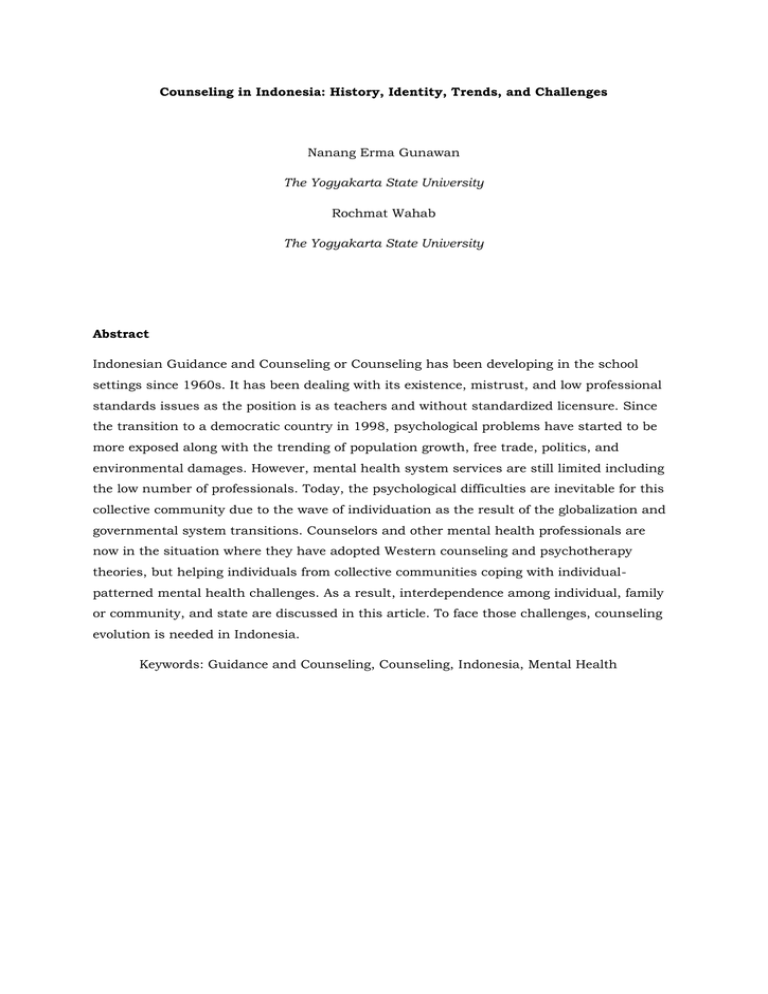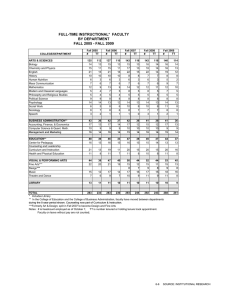Counseling in Indonesia: History, Identity, Trends, and Challenges Abstract Nanang Erma Gunawan
advertisement

Counseling in Indonesia: History, Identity, Trends, and Challenges Nanang Erma Gunawan The Yogyakarta State University Rochmat Wahab The Yogyakarta State University Abstract Indonesian Guidance and Counseling or Counseling has been developing in the school settings since 1960s. It has been dealing with its existence, mistrust, and low professional standards issues as the position is as teachers and without standardized licensure. Since the transition to a democratic country in 1998, psychological problems have started to be more exposed along with the trending of population growth, free trade, politics, and environmental damages. However, mental health system services are still limited including the low number of professionals. Today, the psychological difficulties are inevitable for this collective community due to the wave of individuation as the result of the globalization and governmental system transitions. Counselors and other mental health professionals are now in the situation where they have adopted Western counseling and psychotherapy theories, but helping individuals from collective communities coping with individualpatterned mental health challenges. As a result, interdependence among individual, family or community, and state are discussed in this article. To face those challenges, counseling evolution is needed in Indonesia. Keywords: Guidance and Counseling, Counseling, Indonesia, Mental Health


